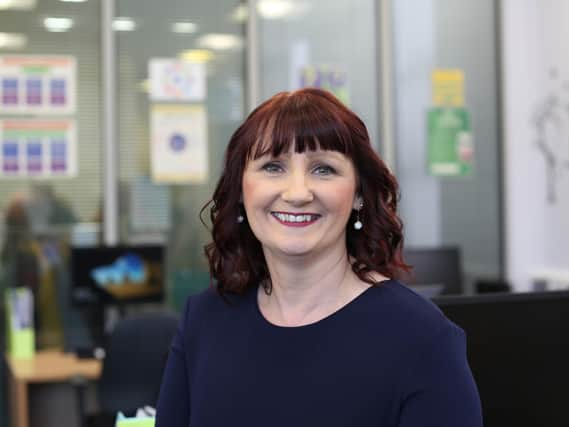NSPCC work is continuing despite the lack of face-to-face contact


The brightly coloured and usually buzzing offices of NSPCC’s Foyle Service Centre are silent at the moment. The walls are decorated by vibrant drawings by some of the children who use the centre but they have not been updated since the end of March when lockdown meant that the usual face-to-face therapeutic work had to cease.
The dedicated and highly skilled team of seven staff at Foyle has been delivering sexual abuse recovery services for almost 20 years. Individual work is offered to children and young people between the ages of four and 17 and it aims to help them overcome the impact of their experiences and “get back on track” – giving them back their future. Support is also offered to parents and carers to help them deal with the impact of abuse on their children and the family as a whole.
Advertisement
Hide AdAdvertisement
Hide AdThe city-centre base features carefully decorated and resourced therapeutic rooms where the NSPCC’s Letting The Future In service is delivered. This service focuses on helping children and young people recover from the traumatic and negative effects of sexual abuse and to rebuild their lives.
Sinéad Hegarty is the service centre manager at the centre. She said: “My team, here in Foyle, works with children and young people who have been impacted by child sexual abuse and it’s vitally important that they get all the help and support they need to help them recover.
“However, we are experiencing an unprecedented challenge at the moment because the lockdown means we aren’t able to carry out our face-to-face work. We know that Covid-19 has caused huge difficulties for children and their families but we are absolutely determined to ensure we do everything in our power to work around this obstacle.
“The most vital thing is to maintain contact and the all-important relationship between the therapeutic worker and the young person. Our approach is very much child- led; some of the young people have asked for regular phone calls which our dedicated staff are happy to do.
Advertisement
Hide AdAdvertisement
Hide Ad“However, we know that some children can find the prospect of speaking over the phone a bit daunting and we use video link or apps to support them at this time.
Sinéad concludes: “Obviously, the current situation is extremely difficult and even when the lockdown ends, there may well be a lot of young people who will need help to recover from such a difficult and stressful situation and an interruption to their work with us. However, our message is clear - the NSPCC Foyle Service Centre is still here for children and their families, we are available to help and are still offering our support in any way we can to help children and young people who have been impacted by child sexual abuse.”